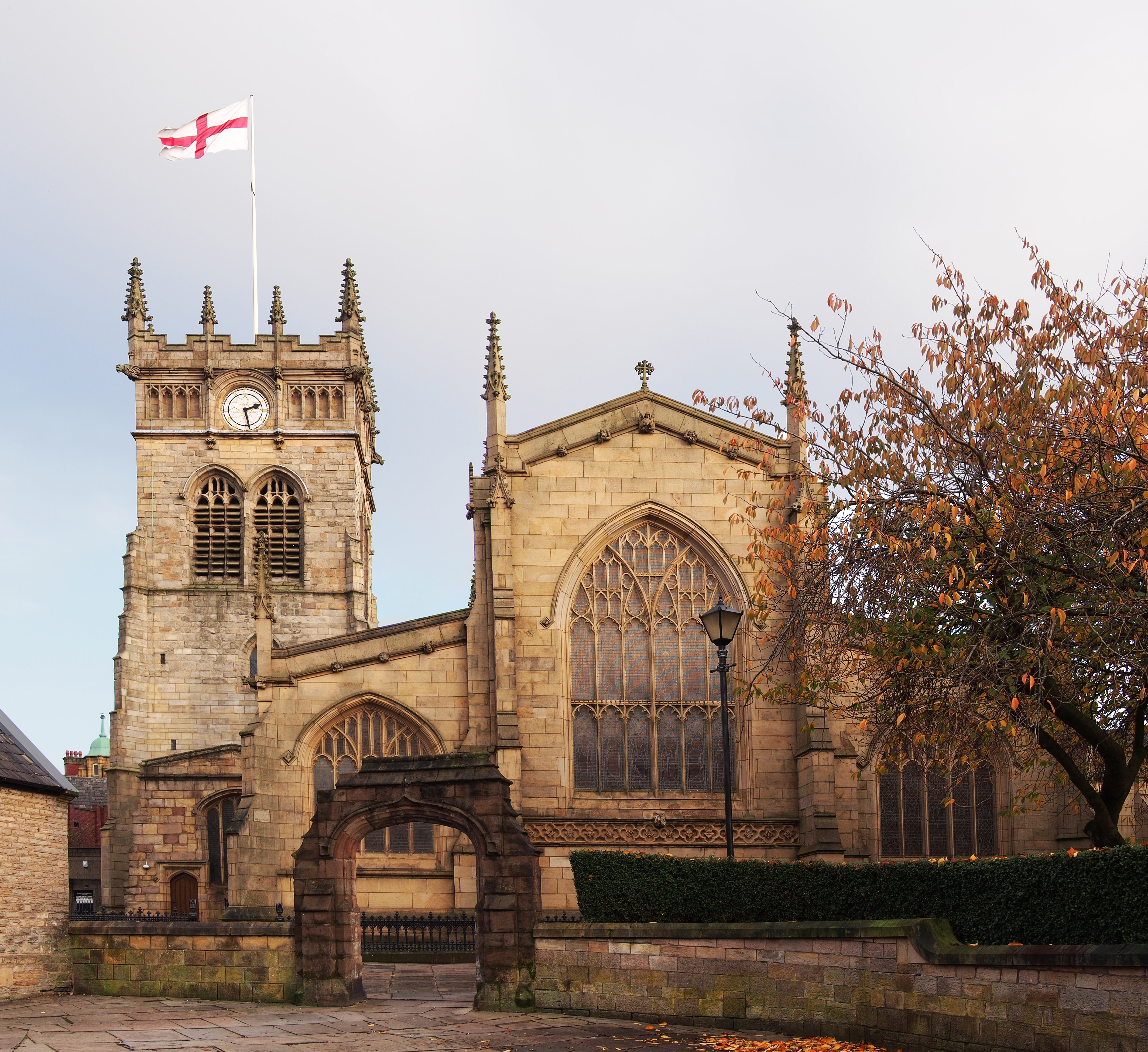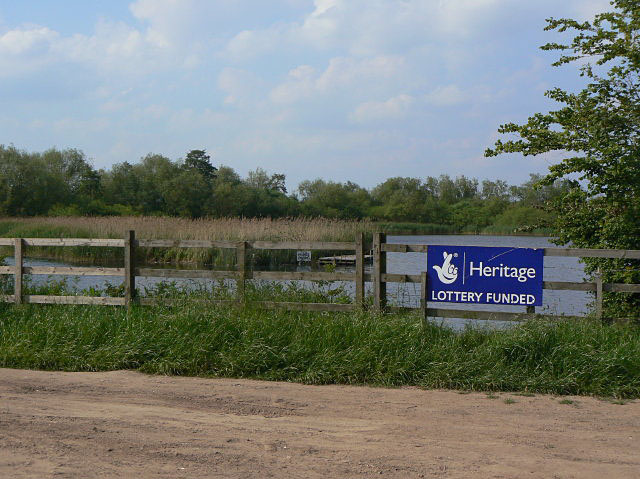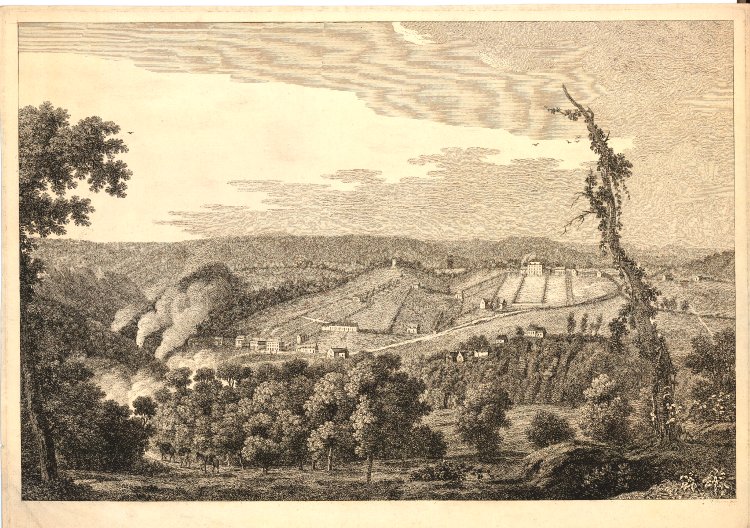|
Mesnes Park, Wigan
Mesnes Park ((Mains) is a Victorian public park dating from 1878 in Wigan, Greater Manchester, UK. The elongated park lies to the north-west of Wigan town centre with its main entrance at the junction of Bridgeman Terrace and Mesnes Park Terrace. It comprises formal flower beds in grass lawns, a pool, children's playgrounds, mini golf, sports grounds and a café. It has recently undergone a multi-million pound restoration after receiving a grant from the Heritage Lottery Fund. Listed features The park itself is Grade II listed and contains a total of seven original Grade II listed features. The main entrance gateway has carved sandstone piers and double cast iron gates with the Wigan town shield and the date of 1878. The associated entrance lodge has been refurbished and is used for meetings and weddings. On the right hand side of the main path (from the entrance to the main Pavilion feature) is the bronze statue of former local MP and benefactor Sir Francis Sharpe Powell. To ... [...More Info...] [...Related Items...] OR: [Wikipedia] [Google] [Baidu] |
Wigan
Wigan ( ) is a large town in Greater Manchester, England, on the River Douglas, Lancashire, River Douglas. The town is midway between the two cities of Manchester, to the south-east, and Liverpool, to the south-west. Bolton lies to the north-east and Warrington to the south. It is the largest settlement in the Metropolitan Borough of Wigan and is its administrative centre. The town has a population of 107,732 and the wider borough of 330,713. Wigan was formerly within the Historic counties of England, historic county of Lancashire. Wigan was in the territory of the Brigantes, an ancient Celtic tribe that ruled much of what is now northern England. The Brigantes were subjugated in the Roman conquest of Britain and the Roman settlement of ''Coccium'' was established where Wigan lies. Wigan was incorporated as a Borough status in the United Kingdom, borough in 1246, following the issue of a charter by Henry III of England, King Henry III of England. At the end of the Middle ... [...More Info...] [...Related Items...] OR: [Wikipedia] [Google] [Baidu] |
Greater Manchester
Greater Manchester is a metropolitan county and combined authority area in North West England, with a population of 2.8 million; comprising ten metropolitan boroughs: Manchester, Salford, Bolton, Bury, Oldham, Rochdale, Stockport, Tameside, Trafford and Wigan. The county was created on 1 April 1974, as a result of the Local Government Act 1972, and designated a functional city region on 1 April 2011. Greater Manchester is formed of parts of the historic counties of Cheshire, Lancashire and the West Riding of Yorkshire. Greater Manchester spans , which roughly covers the territory of the Greater Manchester Built-up Area, the second most populous urban area in the UK. Though geographically landlocked, it is connected to the sea by the Manchester Ship Canal which is still open to shipping in Salford and Trafford. Greater Manchester borders the ceremonial counties of Cheshire (to the south-west and south), Derbyshire (to the south-east), West Yorkshire (to the nort ... [...More Info...] [...Related Items...] OR: [Wikipedia] [Google] [Baidu] |
Wigan Metropolitan Borough Council
The Wigan Metropolitan Borough Council is the local authority for the Metropolitan Borough of Wigan in the United Kingdom. It consists of 75 Councillors with one-third being elected every three years in four. The borough is separated into 25 wards. Councillors are democratically accountable to the ward they are elected to represent. Each ward is represented on the council by three council members. Council members by ward This is a list of the current Wigan Metropolitan Borough Council: Cabinet Eight councillors are appointed to the cabinet who are each a 'Portfolio Holder' for an area of responsibility. (Such as 'Portfolio Holder for Environment'). ;Deaths in office *On 28 January 2013, Barbara Bourne, a representative of Pemberton since 1996, died in office following a long term illness. She was responsible for a long campaign for a new medical centre, which was opened in the area of Kitt Green, in 2010.http://manchestergazette.co.uk/archives/11573 Local election results ... [...More Info...] [...Related Items...] OR: [Wikipedia] [Google] [Baidu] |
Heritage Lottery Fund
The National Lottery Heritage Fund, formerly the Heritage Lottery Fund (HLF), distributes a share of National Lottery funding, supporting a wide range of heritage projects across the United Kingdom. History The fund's predecessor bodies were the National Land Fund, established in 1946, and the National Heritage Memorial Fund, established in 1980. The current body was established as the "Heritage Lottery Fund" in 1994. It was re-branded as the National Lottery Heritage Fund in January 2019. Activities The fund's income comes from the National Lottery which is managed by Camelot Group. Its objectives are "to conserve the UK's diverse heritage, to encourage people to be involved in heritage and to widen access and learning". As of 2019, it had awarded £7.9 billion to 43,000 projects. In 2006, the National Lottery Heritage Fund launched the Parks for People program with the aim to revitalize historic parks and cemeteries. From 2006 to 2021, the Fund had granted £254million ... [...More Info...] [...Related Items...] OR: [Wikipedia] [Google] [Baidu] |
Grade II Listed
In the United Kingdom, a listed building or listed structure is one that has been placed on one of the four statutory lists maintained by Historic England in England, Historic Environment Scotland in Scotland, in Wales, and the Northern Ireland Environment Agency in Northern Ireland. The term has also been used in the Republic of Ireland, where buildings are protected under the Planning and Development Act 2000. The statutory term in Ireland is "protected structure". A listed building may not be demolished, extended, or altered without special permission from the local planning authority, which typically consults the relevant central government agency, particularly for significant alterations to the more notable listed buildings. In England and Wales, a national amenity society must be notified of any work to a listed building which involves any element of demolition. Exemption from secular listed building control is provided for some buildings in current use for worship ... [...More Info...] [...Related Items...] OR: [Wikipedia] [Google] [Baidu] |
Sir Francis Powell, 1st Baronet
Sir Francis Sharp Powell, 1st Baronet (29 June 1827 – 24 December 1911) was an English Conservative politician who sat in the House of Commons between 1863 and 1910. Powell was the son of the Rev. Benjamin Powell of Wigan and his wife Anne Wade, daughter of the Rev. T. Wade. He was educated at Uppingham School, Sedbergh School and St John's College, Cambridge He was called to the bar at Inner Temple in 1853, and practised on the Northern Circuit. He was a J.P. for Lancashire and the West Riding of Yorkshire. In the 1857 general election Powell was elected as a Member of Parliament (MP) for Wigan, but was not re-elected in 1859. Later in that Parliament, he was elected at a by-election for Cambridge but lost the seat in the 1868 general election. He was re-elected in 1865, and held the seat until his defeat at the 1868 general election He was next elected MP for Northern Division of West Riding, Yorkshire in 1872 but lost the seat in the 1874 general election. He was elec ... [...More Info...] [...Related Items...] OR: [Wikipedia] [Google] [Baidu] |
Boer War
The Second Boer War ( af, Tweede Vryheidsoorlog, , 11 October 189931 May 1902), also known as the Boer War, the Anglo–Boer War, or the South African War, was a conflict fought between the British Empire and the two Boer Republics (the South African Republic and the Orange Free State) over the Empire's influence in Southern Africa from 1899 to 1902. Following the discovery of gold deposits in the Boer republics, there was a large influx of "foreigners", mostly British from the Cape Colony. They were not permitted to have a vote, and were regarded as "unwelcome visitors", invaders, and they protested to the British authorities in the Cape. Negotiations failed and, in the opening stages of the war, the Boers launched successful attacks against British outposts before being pushed back by imperial reinforcements. Though the British swiftly occupied the Boer republics, numerous Boers refused to accept defeat and engaged in guerrilla warfare. Eventually, British scorched eart ... [...More Info...] [...Related Items...] OR: [Wikipedia] [Google] [Baidu] |
Coalbrookdale
Coalbrookdale is a village in the Ironbridge Gorge in Shropshire, England, containing a settlement of great significance in the history of iron ore smelting. It lies within the civil parish called the Gorge. This is where iron ore was first smelted by Abraham Darby using easily mined "coking coal". The coal was drawn from drift mines in the sides of the valley. As it contained far fewer impurities than normal coal, the iron it produced was of a superior quality. Along with many other industrial developments that were going on in other parts of the country, this discovery was a major factor in the growing industrialisation of Britain, which was to become known as the Industrial Revolution. Today, Coalbrookdale is home to the Ironbridge Institute, a partnership between the University of Birmingham and the Ironbridge Gorge Museum Trust offering postgraduate and professional development courses in heritage. Before Abraham Darby Before the Dissolution of the Monasteries, Made ... [...More Info...] [...Related Items...] OR: [Wikipedia] [Google] [Baidu] |
Demesnes
A demesne ( ) or domain was all the land retained and managed by a lord of the manor under the feudal system for his own use, occupation, or support. This distinguished it from land sub-enfeoffed by him to others as sub-tenants. The concept originated in the Kingdom of France and found its way to foreign lands influenced by it or its fiefdoms. In England, Wales and Northern Ireland, royal demesne is the land held by the Crown, and ancient demesne is the legal term for the land held by the king at the time of the Domesday Book. Etymology The word derives from Old French , ultimately from Latin , "lord, master of a household" – ''demesne'' is a variant of ''domaine''. The word ''barton'', which is historically synonymous to ''demesne'' and is an element found in many place-names, can refer to a demesne farm: it derives from Old English ''bere'' (barley) and ''ton'' (enclosure). Development The system of manorial land tenure, broadly termed feudalism, was conceived in Franc ... [...More Info...] [...Related Items...] OR: [Wikipedia] [Google] [Baidu] |
Lord Of The Manor
Lord of the Manor is a title that, in Anglo-Saxon England, referred to the landholder of a rural estate. The lord enjoyed manorial rights (the rights to establish and occupy a residence, known as the manor house and demesne) as well as seignory, the right to grant or draw benefit from the estate. The title continues in modern England and Wales as a legally recognised form of property that can be held independently of its historical rights. It may belong entirely to one person or be a moiety shared with other people. A title similar to such a lordship is known in French as ''Sieur'' or , in German, (Kaleagasi) in Turkish, in Norwegian and Swedish, in Welsh, in Dutch, and or in Italian. Types Historically a lord of the manor could either be a tenant-in-chief if he held a capital manor directly from the Crown, or a mesne lord if he was the vassal of another lord. The origins of the lordship of manors arose in the Anglo-Saxon system of manorialism. Following ... [...More Info...] [...Related Items...] OR: [Wikipedia] [Google] [Baidu] |
Glebe
Glebe (; also known as church furlong, rectory manor or parson's close(s))McGurk 1970, p. 17 is an area of land within an ecclesiastical parish used to support a parish priest. The land may be owned by the church, or its profits may be reserved to the church. Medieval origins In the Roman Catholic, Anglican and Presbyterian traditions, a glebe is land belonging to a benefice and so by default to its incumbent. In other words, "glebe is land (in addition to or including the parsonage house/rectory and grounds) which was assigned to support the priest".Coredon 2007, p. 140 The word ''glebe'' itself comes from Middle English, from the Old French (originally from la, gleba or , "clod, land, soil"). Glebe land can include strips in the open-field system or portions grouped together into a compact plot of land. In early times, tithes provided the main means of support for the parish clergy, but glebe land was either granted by any lord of the manor of the church's parish (sometim ... [...More Info...] [...Related Items...] OR: [Wikipedia] [Google] [Baidu] |
Nathaniel Eckersley
Nathaniel Eckersley (1815 – 15 February 1892) was an English mill-owner, banker and Conservative Party politician from Standish Hall, near Wigan in Lancashire. He sat in the House of Commons for three years in the 1860s, and two years in the 1880s. Career His uncle was Colonel Nathaniel Eckersley, from Laurel House in Hindley, who served with the Duke of Wellington and at the military station established in Manchester after the Peterloo Massacre. In addition to his cotton mills, Eckersley was a partner of the ''Wigan Old Bank'', formerly ''Thomas Woodock's, Sons and Eckersle''y, which amalgamated in 1874 with ''Parr's Banking Company'' in Warrington. He was Mayor of Wigan in 1853 and in 1873, and was appointed as a Deputy Lieutenant of Lancashire in September 1863. In January 1860 he raised the 21st (Wigan) Lancashire Rifle Volunteer Corps, drawn mainly from artisans employed by the local collieries and engineering works, officered by local professional men. He ... [...More Info...] [...Related Items...] OR: [Wikipedia] [Google] [Baidu] |







